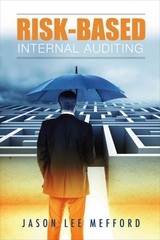Question
Storm Tools has formed a new business unit to produce battery-powered drills. The business unit was formed by the transfer of selected assets and obligations
Storm Tools has formed a new business unit to produce battery-powered drills. The business unit was formed by the transfer of selected assets and obligations from the parent company. The unit's initial balance sheet on January 1 contained cash ($500,000), plant and equipment ($2,500,000), notes payable to the parent ($1,000,000), and residual equity ($2,225,000).
The business unit is expected to repay the note at $50,000 per month, plus all accrued interest at 1/2% per month. Payments are made on the last day of each month.
The unit is scheduled to produce 25,000 drills during January, with an increase of 2,500 units per month for the next three months. Each drill requires $40 of raw materials. Raw materials are purchased on account, and paid in the month following the month of purchase. The plant manager has established a goal to end each month with raw materials on hand, su cient to meet 25% of the following month's planned production.
The unit expects to sell 20,000 drills in January; 25,000 in February, 25,000 in March, and 30,000 per month thereafter. The selling price is $100 per drill. Half of the drills will be sold for cash through a website. The others will be sold to retailers on account, who pay 40% in the month of purchase, and 60% in the following month. Uncollectible accounts are not material.
Each drill requires 20 minutes of direct labor to assemble. Labor rates are $24 per hour. Variable factory overhead is applied at $9 per direct labor hour. The xed factory overhead is $25,000 per month; 60% of this amount is related to depreciation of plant and equipment. With the exception of depreciation, all overhead is funded as incurred.
Selling, general, and administrative costs are funded in cash as incurred, and consist of xed components (salaries, $100,000; o ce, $40,000; and advertising, $75,000) and variable components (15% of sales).
Monthly comprehensive budget plan for Storm's new business unit for January through March. The plan should include the (a) sales and cash collections budget, (b) production budget, (c) direct materials purchases and payments budget, (d) direct labor budget, (e) factory overhead budget, (f) ending nished goods budget (assume total factory overhead is applied to production at the rate of $11.73 per direct labor hour), (g) SG&A budget, and (h) cash budget.
How to make this into a master budget
Step by Step Solution
There are 3 Steps involved in it
Step: 1

Get Instant Access to Expert-Tailored Solutions
See step-by-step solutions with expert insights and AI powered tools for academic success
Step: 2

Step: 3

Ace Your Homework with AI
Get the answers you need in no time with our AI-driven, step-by-step assistance
Get Started


